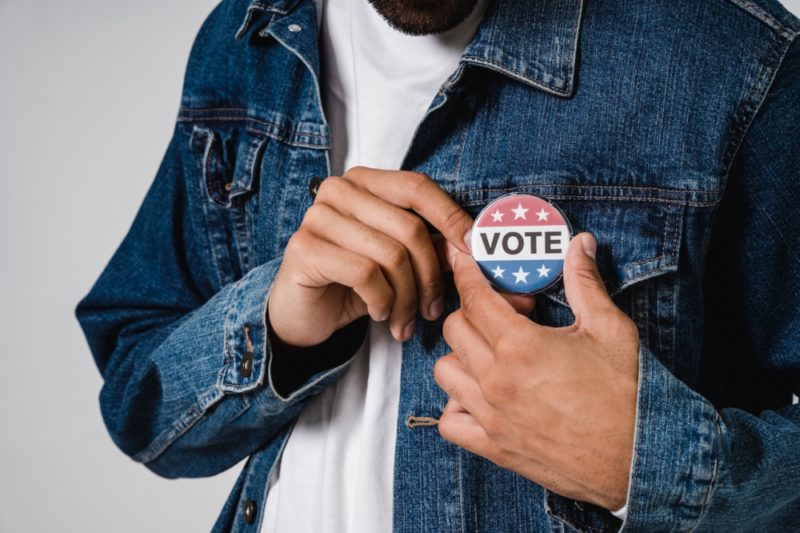Although many of the big elections of the 2022 midterms have been called and the sky hasn’t fallen yet, we won’t know the final makeup of US Congress until December, when Sen. Raphael Warnock and Herschel Walker have their runoff in Georgia. Races still in the “too close to call” category threaten to draw the election out, too, and some races could be contested.
On top of that, elections since 2020 are now associated with violence, which can be more than enough to amp up your anxiety.
A fall 2020 survey conducted by the American Psychological Association and Harris Poll found more than two-thirds of US adults (68%) said that year’s US presidential election was a significant source of stress in their life, versus 52% at the time of the 2016 presidential election.
It even has a name: election stress disorder. It’s not a scientific diagnosis, but it is accepted as a real concept by some psychiatrists, including the Mayo Clinic’s Dr. Robert Bright.
Real, but often not taken seriously
The New York Times was widely ridiculed on Election Day for tweeting a list of coping strategies, including dunking your face in ice water, but the suggestions weren’t all bad:
Elections and anxiety often go hand in hand. Here are some evidence-based strategies that can help you cope. https://t.co/Bu9Bq5AVqh pic.twitter.com/WkF7ClDpyA
— The New York Times (@nytimes) November 8, 2022
Calling diaphragmatic breathing “breathing like a baby” aside, deep breathing cycles can actually physically ease anxiety because it increases the amount of oxygen your body is taking in, evening out the exchange with carbon dioxide. When you’re stressed, you may unconsciously breathe shallowly into your chest and not all the way into your belly (and yes, breathing into the belly is what babies naturally do). It not only helps you relax, it can also lower your blood pressure and heart rate.
You can do deep breathing cycles with and app such as Calm or Breathly. For the workplace, in-person wellness programs like the Philly-based On The Goga can help teams reduce stress as a group.
Speaking of your team: If coworkers, like some of the more hostile responders to the NYT self-care tweet, find it funny or “weak” that you are going through election anxiety, seek out resources through your employer, which should not allow for mistreatment of its employees.
Beyond self care
Don’t rely only on self care if the stress is interfering with your life — speak to a therapist or psychiatrist, either in-office or virtually. Your regular doctor should be able to help set you up with a telehealth appointment with a mental health professional who accepts your insurance. If you don’t have health insurance, look into local services offered through freementalhealth.us or look up your state’s National Alliance on Mental Illness chapter for resources.
Depending on where you live or go to school, you may have access to mental health kiosks at your local library, pharmacy or campus.
One common piece of advice, to “just ignore the news,” is easier said than done.
“You can’t just shut it down and put your head in the ground,” Rich Lombino, a Wilmington therapist who specializes in workplace stress, told Technical.ly in 2020. “You have to be informed, while at the same time taking care of yourself. I recommend that people set up some sort of structure, like in the morning read the news, limiting how many articles you read, and again toward the end of the day and end it there. Stay away from social media and its conspiracy theories. Turn off news alerts. It can make a significant difference.”
And if you’re feeling fine and stress-free as we head into the aftermath of the midterm elections, try not to turn other people’s mental health issues into a joke.
Before you go...
Please consider supporting Technical.ly to keep our independent journalism strong. Unlike most business-focused media outlets, we don’t have a paywall. Instead, we count on your personal and organizational support.
Join our growing Slack community
Join 5,000 tech professionals and entrepreneurs in our community Slack today!

The person charged in the UnitedHealthcare CEO shooting had a ton of tech connections

Delaware students take a field trip to China using their tablets and ChatGPT

From rejection to innovation: How I built a tool to beat AI hiring algorithms at their own game


